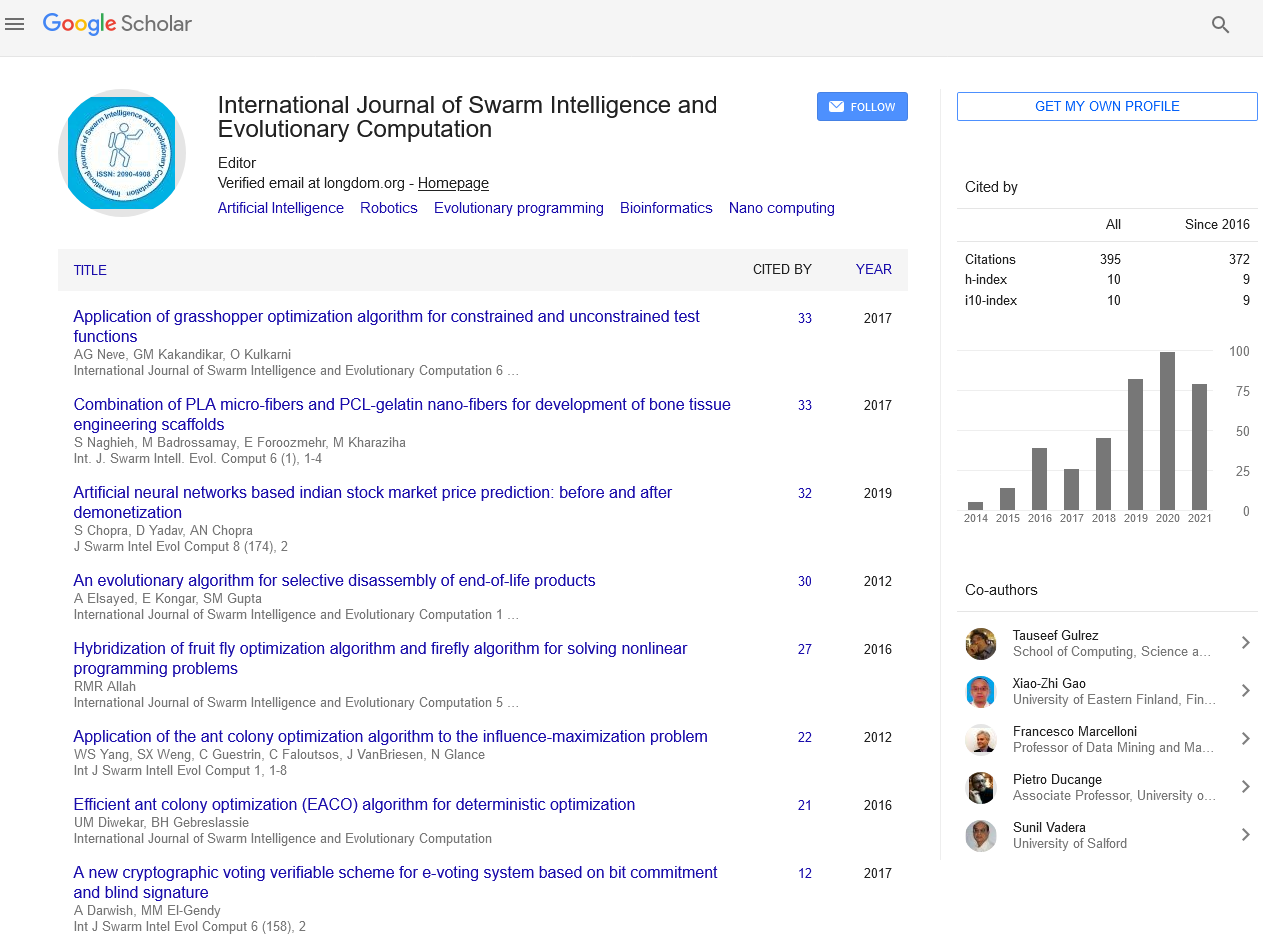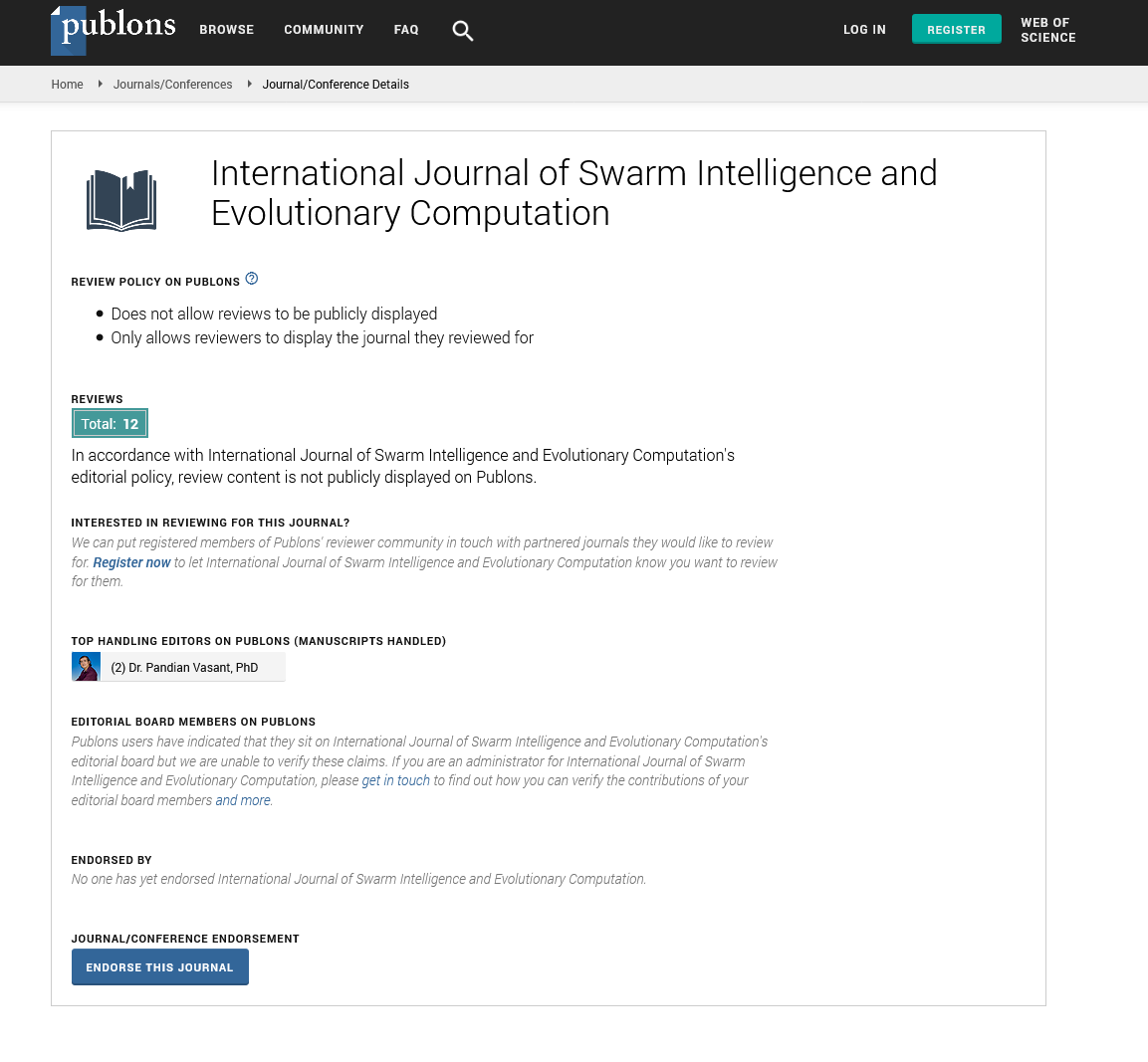Indexed In
- Genamics JournalSeek
- RefSeek
- Hamdard University
- EBSCO A-Z
- OCLC- WorldCat
- Publons
- Euro Pub
- Google Scholar
Useful Links
Share This Page
Journal Flyer

Open Access Journals
- Agri and Aquaculture
- Biochemistry
- Bioinformatics & Systems Biology
- Business & Management
- Chemistry
- Clinical Sciences
- Engineering
- Food & Nutrition
- General Science
- Genetics & Molecular Biology
- Immunology & Microbiology
- Medical Sciences
- Neuroscience & Psychology
- Nursing & Health Care
- Pharmaceutical Sciences
Editorial - (2021) Volume 0, Issue 0
Ethics of Artificial Intelligence and Robotics
Sai Krishna*Received: 25-Aug-2021 Published: 15-Sep-2021, DOI: 10.35248/2090-4908.21.s5.e005
Description
Artificial intelligence (AI) and robotics are computerized advances that will altogether affect the improvement of humanity in the near future. The ethics of AI and robotics is often focused on “concerns” of different sorts, which is a typical reaction to new advancements. Many such concerns turn out to be rather quaint (trains are too fast for souls); some are typically wrong when they propose that the innovation will fundamentally change people (telephones will destroy personal communication, writing will destroy memory, video tapes will make going out redundant); some are broadly correct but moderately relevant (digital innovation will destroy industries that make visual film, cassette tapes, or vinyl records); yet some are extensively right and profoundly significant (vehicles will kill youngsters and essentially change the scene). A few innovations, as nuclear power, vehicles, or plastics, have prompted ethical and political conversation and significant policy efforts to control the trajectory these technologies, usually only once some damage is done. The ethics of AI and robotics has seen huge press inclusion in recent years, which supports related research, yet in addition might end up undermining it: the press frequently talks as though the issues being talked about were only expectations of what future innovation will bring, and as though we already know what would be most ethical and how to achieve that. Press inclusion accordingly focuses on around risk, security, and prediction of impact (e.g., on the job market). The ethics of AI and robotics is a very young field within applied ethics, with significant dynamics, but few well-established issues and no authoritative overviews—though there is a promising outline (European Group on Ethics in Science and New Technologies 2018) and there are beginnings on societal impact , and policy recommendations.
Machine ethics
Machine morals are morals for machines, for "moral machines", for machines as subjects, as opposed to for the human utilization of machines as items. It is generally expected not exceptionally evident whether this should cover all of AI morals or to be a piece of it. Machine ethics is concerned about ensuring that the conduct of machines toward human users, and maybe different machines, is ethically acceptable. A portion of the conversation in machine ethics makes the very substantial assumption that machines can, in some sense, be ethical specialists liable for their activities, or "autonomous moral agents”. In some cases it is observed that a robot that is programmed to adhere to ethical principles can undoubtedly be altered to follow unethical rules.
Rights for robots
A few authors have indicated that it ought to be seriously considered whether current robots should be allotted rights. This position appears to depend generally on criticism of the opponents and on the empirical observation those robots and other non-people are sometimes treated as having rights. In this vein, a "relational turn" has been proposed: If we identify with robots like they had rights, then, at that point we may be very much exhorted not to look through whether they "truly" do have such rights. This brings up the issue how far such anti-realism or quasi-realism can go, and what it implies then to say that "robots have rights" in a human-centered approach. There is a completely independent issue whether robots (or other AI systems) ought to be given the status with "legal entities" or "legal people" in sense natural persons, yet additionally states, organizations, or associations are "entities", specifically they can have legal rights and duties. The European parliament has considered apportioning such status to robots in order to deal with civil liability, yet not criminal liability—which is saved for natural persons. It would likewise be feasible to allot just a specific subset of rights and duties to robots. It has been said that "such legislative action would be ethically pointless and legally problematic" because it would not serve the interest of humans.
Citation: Krishna S (2021) Ethics of Artificial Intelligence and Robotics. Int J Swarm Evol Comput. S5:e005.
Copyright: © 2021 Krishna S. This is an open-access article distributed under the terms of the Creative Commons Attribution License, which permits unrestricted use, distribution, and reproduction in any medium, provided the original author and source are credited.


